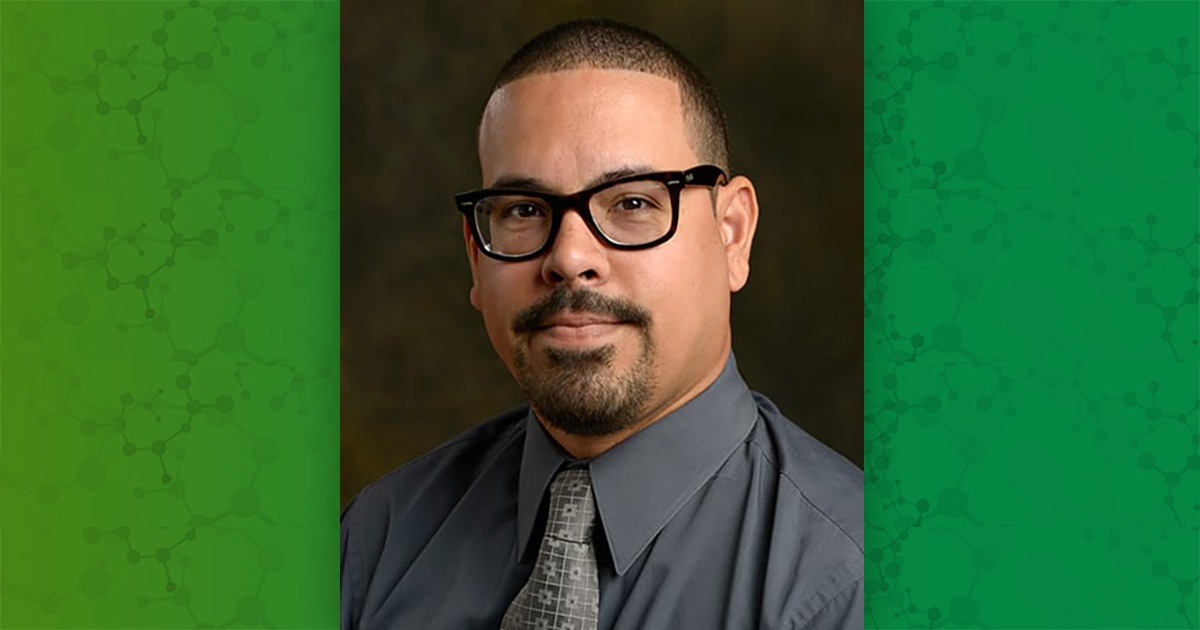In honor of Hispanic Heritage Month, NIEHS hosted a lecture by University of Central Florida (UCF) sociologist Fernando Rivera, Ph.D., titled “The Intersection Between Biography and Research: My Academic Journey.” He discussed how personal experiences influenced his research into mental health, disasters, climate migration, and race and ethnicity.
The Oct. 18 event, part of the NIEHS Diversity Speaker Series, was sponsored by the institute’s Office of Science Education and Diversity (OSED). The lecture also recognized the National Institutes of Health Office of Equity, Diversity and Inclusion’s Special Emphasis Portfolios for Hispanic and Latino Employees.
“This speaker series is our effort to bring together folks from many different communities to hear about their journeys, their life stories, and, of course, the work that they do in the community or in the lab,” said OSED Director Ericka Reid, Ph.D.
Focused on mental health
Rivera studied sociology at the University of Puerto Rico-Mayagüez. When he attended graduate school at the University of Nebraska-Lincoln, he was suddenly a minority. After earning his Ph.D., Rivera joined UCF. More people of Hispanic or Latino origin live in Florida than Nebraska, but they still make up just 26% of the state’s population.
“All of those experiences shaped the way I do research,” Rivera said.
When he first arrived at UCF, Rivera began to investigate health disparities. “My principal research question at the time was why is it that Puerto Ricans, compared to other Latino subgroups, tend to have worse health and mental health outcomes?” he noted.
Drawing from his own experience, Rivera hypothesized that acculturation, or how well one fits in with society when coming from another society, may be a cause. He found that as people try to integrate into their adopted environment, they often become more depressed.
At first, he thought that might be due to decreasing family support as one integrates into a new society, which typically staves off depression. However, he learned that the relationship was not as simple as expected because different groups experienced different outcomes.
So, Rivera looked at other factors, including perceived discrimination and race, revealing that the effect of discrimination on depression levels is greater for Black Latinos than non-Black Latinos. Studying other communities, he found an association between discrimination and anti-social behavior in Puerto Rican populations in both the South Bronx, New York, and in Puerto Rico.
According to Rivera, evidence suggests that the Puerto Rican population does not fit into the Latino health paradox, which is a situation where first-generation Latino immigrants are healthier than Latinos from second- and third-generation Latino immigrants. So, he began investigating structural issues such as income, wealth inequality, and residential segregation.
The COVID-19 pandemic offered insight into the Puerto Rican population, showing that in equitable circumstances, like when vaccines are available to everyone, the health outcomes tend to be more favorable, Rivera told attendees.
Preparing for disaster
Another area of Rivera’s work focuses on disaster resilience and preparedness, social support, rural community disaster resiliency, and disaster vulnerability. He and colleagues looked to Florida to see what lessons could be applied elsewhere.
In 2015, he published a book titled “Disaster Vulnerability, Hazards and Resilience.” When Hurricane Maria hit in September 2017, people looked to Rivera for input. Thanks to the evolution of his research, he was able to inform those asking for help.
Those experiences led him to create the UCF Puerto Rico Research Hub in 2019. The group could respond to the community’s needs and allow new researchers to address important questions. That same year, he published another book titled “Emerging Voices in Natural Hazards Research.” According to Rivera, the research hub replicates what his mentors did for him: provide opportunities. Now, he can do that for the next generation of researchers.
Climate migration
Funded by a grant from the National Academy of Sciences, the research hub is exploring the capacity of communities to prepare for and integrate climate migrants. Those are individuals who move because of climate-related events and disasters such as hurricanes, floods, and drought.
The researchers will study the migration of Puerto Rican residents to central Florida in the wake of Hurricane Maria. The team will measure local capacity to absorb newcomers before, during, and after migration. It will do that by evaluating housing, financial services, jobs, economic development opportunities, health care, and social, cultural, and recreational facilities.
“Our emphasis is on Puerto Rico, but eventually, a lot of communities will experience these challenges,” Rivera noted. Ultimately, he said, findings from the research project could help communities become more resilient following climate-related disasters.
(Susan Cosier is a contract writer for the NIEHS Office of Communications and Public Liaison.)
Source link
factor.niehs.nih.gov

